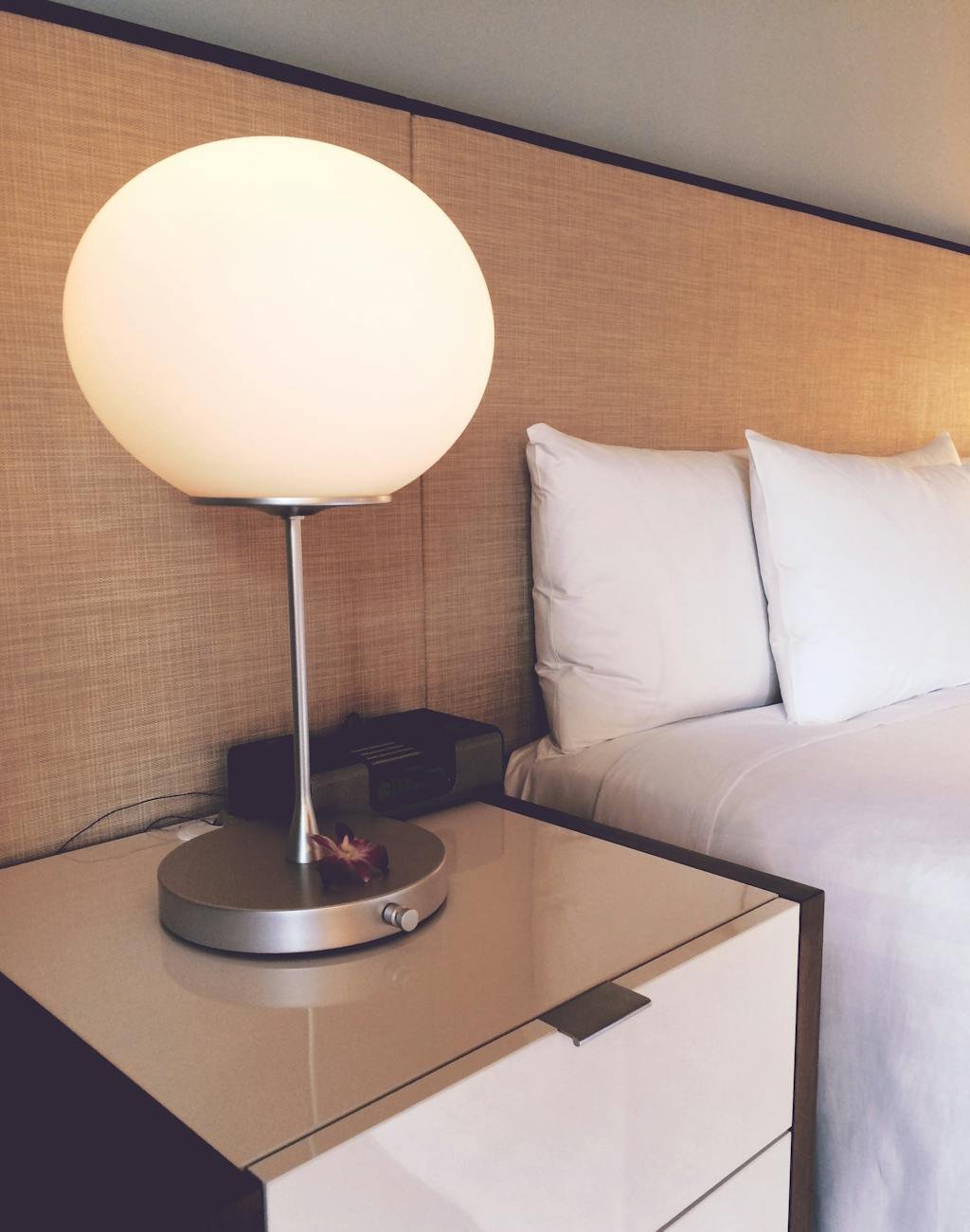Table of Contents

Introduction to Sleep Hygiene
Sleep hygiene refers to the practices and habits that are conducive to sleeping well regularly. Good sleep hygiene is critical for maintaining overall health and well-being, as it ensures both the quantity and quality of sleep necessary for optimal physical and mental function. Poor sleep habits can lead to a variety of health issues, ranging from chronic fatigue and impaired cognitive function to more severe conditions such as cardiovascular disease, obesity, and depression.
Understanding and improving sleep hygiene can have profound benefits. By adopting positive sleep practices, individuals can enhance their nightly rest, leading to better daytime productivity, mood stabilisation, and overall health improvement. Common poor sleep habits include irregular sleep schedules, excessive screen time before bed, and consumption of stimulants like caffeine and nicotine. Addressing these habits through practical and evidence-based strategies can mitigate their negative effects.
This blog post aims to give readers practical tips for improving their sleep hygiene. We will cover various methods, including herbal remedies, that have gained support from scientific research. These natural solutions can provide a gentle yet effective way to enhance sleep quality without the side effects often linked to pharmaceutical sleep aids. By incorporating these practices into their daily routines, individuals can create a healthier, more restful sleep environment.
Understanding the Sleep Cycle
The sleep cycle is a complex and fascinating process that plays a critical role in our overall health and well-being. It consists of multiple stages that alternate between non-REM (Rapid Eye Movement) and REM sleep. These stages are vital for achieving restorative sleep, which is essential for physical and mental rejuvenation.
Non-REM sleep comprises three distinct stages. Stage 1 is the lightest phase of sleep, lasting several minutes as we transition from wakefulness to sleep. It is characterized by slow eye movements and reduced muscle activity. Stage 2 follows, marking the onset of true sleep. During this phase, eye movements cease, heart rate slows, and body temperature drops, preparing the body for deeper sleep. The final stage of non-REM sleep, Stage 3, also known as deep or slow-wave sleep, is the most restorative. It is during this stage that the body repairs tissues strengthens the immune system, and consolidates memories.
REM sleep, on the other hand, is marked by rapid eye movements, increased brain activity, and vivid dreaming. This stage is crucial for cognitive functions, such as learning and memory consolidation. REM sleep typically occurs about 90 minutes after falling asleep and recurs several times throughout the night. The duration of REM sleep increases with each cycle, emphasizing its importance in the overall sleep architecture.
Maintaining a consistent sleep schedule is paramount for supporting a healthy sleep cycle. Irregular sleep patterns can disrupt the balance between non-REM and REM sleep, leading to inadequate restorative sleep. Sticking to a regular bedtime and wake-up time helps regulate the body’s internal clock, ensuring the smooth progression through the various sleep stages.
For those interested in delving further into the science of sleep, several studies can provide valuable insights, for instance, research published in The Journal Sleep explores the dynamics of sleep cycles and their impact on health. A study in Nature Reviews Neuroscience discusses the importance of sleep for brain function and cognitive performance.

Creating a Sleep-Conducive Environment
Establishing a sleep-conducive environment is a critical aspect of good sleep hygiene. A bedroom that supports restful sleep involves several key elements. Evidence indicates that maintaining a cool room temperature between 15.6 and 19.4°C (60-67 degrees F) can significantly enhance sleep quality. A cooler environment lowers the body’s core temperature, a natural precursor to sleep onset.
Darkness plays an equally vital role. Exposure to light, especially blue light from electronic devices, can interfere with the body’s production of melatonin, a hormone that regulates sleep. To mitigate this, consider blackout curtains or an eye mask to ensure a dark room. Additionally, reducing exposure to screens at least an hour before bedtime can further aid in maintaining natural sleep rhythms.
Reducing noise is important for a good night’s sleep. A quiet environment helps minimise disruptions. If external noises can’t be avoided try using white noise machines or earplugs can be effective. Studies have shown continuous, low-level noise can help mask disruptive sounds, promoting uninterrupted sleep.
Investing in a comfortable mattress and pillows tailored to your sleeping position can make a substantial difference. A mattress that provides adequate support and comfort helps prevent aches and pains, while pillows that align your neck with your spine can mitigate discomfort and improve sleep quality. Research supports that personalised sleep surfaces contribute to better rest and overall health.
Therefore, creating a sleep-conducive environment involves a holistic approach, combining optimal temperature, darkness, quiet, and comfort. Integrating these elements can significantly improve sleep hygiene and overall well-being.
Establishing a Bedtime Routine
Establishing a regular bedtime routine signals the body that it is time to wind down and prepare for sleep. A consistent routine helps regulate the body’s internal clock, known as the circadian rhythm, thereby improving sleep quality and overall health. Calming activities before bed can significantly enhance the transition from wakefulness to sleep.
Reading a book is a popular choice for many individuals. This activity not only distracts the mind from the stresses of the day but also reduces exposure to blue light emitted by electronic screens, which can interfere with melatonin production. A warm bath is another effective relaxation method. The rise and subsequent fall in body temperature post-bath can induce a state of drowsiness, making it easier to fall asleep.
Relaxation techniques such as meditation and deep breathing exercises can also be highly beneficial. These practices activate the parasympathetic nervous system, promoting a state of calm and reducing the levels of stress hormones in the body. Research has shown that meditation can improve sleep quality and reduce symptoms of insomnia. Similarly, deep breathing exercises can lower heart rate and blood pressure, creating an optimal environment for sleep.
Studies have highlighted the positive impact of a consistent bedtime routine on sleep quality. For instance, research published in the journal Sleep Health found that individuals who followed a regular pre-sleep routine experienced better sleep quality and felt more refreshed upon waking. Another study in the Journal of Clinical Sleep Medicine indicated that a structured bedtime routine can significantly reduce sleep onset latency, meaning individuals fall asleep faster.
Incorporating these activities into your nightly schedule can create a sense of predictability and comfort, signalling to your body and mind that it is time to sleep. A well-established bedtime routine is a cornerstone of good sleep hygiene, fostering a restful and rejuvenating sleep experience.
Diet and Sleep: Foods and Drinks to Avoid
Diet plays a crucial role in determining the quality of sleep. Various foods and beverages can either enhance or disrupt our sleep patterns. Read our post on the benefits of herbal teas to find out more. One of the primary culprits to avoid is caffeine. Found in coffee, tea, chocolate, and many sodas, caffeine is a potent stimulant that can interfere with the ability to fall asleep and stay asleep. Consuming caffeine even six hours before bedtime can significantly reduce sleep quality.

Alcohol is another substance that can negatively impact sleep. While it might help you fall asleep faster, alcohol disrupts the sleep cycle, particularly the REM (Rapid Eye Movement) stage, which is essential for restorative sleep. This disruption can lead to fragmented sleep, causing you to wake up feeling unrefreshed.
Heavy meals and spicy foods should also be avoided close to bedtime. Eating large portions late at night can cause discomfort and indigestion, making it difficult to fall asleep. Spicy foods, in particular, can lead to heartburn and disrupt sleep. It’s recommended to have your last meal at least two to three hours before going to bed to allow proper digestion our Tip Top Tummy Tea helps aid digestion.
A balanced diet is integral to promoting restful sleep. Foods rich in vitamins and minerals such as magnesium, calcium, and B vitamins can support the sleep process. For instance, nuts, seeds, leafy greens, and whole grains are excellent sources of these nutrients. Additionally, tryptophan-rich foods like turkey, chicken, and bananas can promote the production of serotonin and melatonin, hormones that regulate sleep.
For more information on the relationship between diet and sleep, consider reading these evidence-based articles: How Food Impacts Sleep and Foods and Drinks that Affect Your Sleep. Optimising and understanding your diet can significantly enhance sleep quality and overall well-being.
Herbal Remedies for Better Sleep
Herbal remedies have been utilised for centuries to improve sleep quality, offer relaxation, and maintain overall well-being. Among the most notable herbs for sleep enhancement are valerian root, chamomile, lavender, and passionflower. Each of these herbs offers unique benefits that can contribute to a restful night’s sleep.
Valerian Root: Valerian root is widely recognised for its sedative properties, which can help alleviate insomnia and anxiety. It works by increasing levels of gamma-aminobutyric acid (GABA) in the brain, a neurotransmitter that promotes relaxation. Numerous studies have demonstrated its effectiveness in reducing sleep latency and improving sleep quality. For instance, a study published in the National Center for Biotechnology Information (NCBI) highlights its positive impact on sleep disorders.
Chamomile: Chamomile is another popular herb known for its calming effects. Its mild sedative properties make it a common ingredient in sleep teas. Chamomile contains apigenin, an antioxidant that binds to certain receptors in the brain, promoting sleepiness and reducing insomnia symptoms. Research published in the Journal of Clinical Psychopharmacology supports chamomile’s role in improving sleep quality.
Lavender: Lavender is perhaps best known for its soothing fragrance, but it also offers significant sleep-enhancing benefits. The scent of lavender has been shown to slow down the nervous system, improving sleep quality and increasing the ability to relax. A study in the Journal of Alternative and Complementary Medicine found that lavender aromatherapy can significantly improve sleep quality and duration.

Passionflower: Passionflower one of the main ingredients in our Sweet Dream blend, is often used to treat sleep disturbances and anxiety. It works by increasing GABA levels in the brain, similar to valerian root. This mild sedative effect can help enhance overall sleep quality. The research highlighted in the Phytotherapy Research journal provides evidence of passionflower’s efficacy in treating sleep disorders.
Incorporating herbal teas like our Sweet Dreams into your nightly routine may offer a natural and effective way to improve sleep quality. Always consult with a healthcare provider before starting any new herbal regimen, especially if you are pregnant, nursing, or taking other medications.
Exercise and Sleep: Finding the Right Balance
Regular physical activity plays a crucial role in enhancing sleep quality, contributing significantly to overall sleep hygiene. Engaging in consistent exercise helps regulate the body’s circadian rhythms, making it easier to fall asleep and stay asleep. Research has consistently shown that individuals who maintain an active lifestyle tend to experience deeper and more restorative sleep compared to those who are sedentary.
However, the timing of exercise is essential to maximise its benefits for sleep. While moderate aerobic activities like walking, swimming, or cycling can promote better sleep when done at any time of the day, vigorous workouts should be timed carefully. Performing high-intensity exercise too close to bedtime can stimulate the nervous system and elevate heart rate, potentially making it difficult to wind down. Experts generally recommend completing strenuous physical activities at least three hours before bedtime.
An optimal time for vigorous exercise is often in the late afternoon or early evening, allowing the body ample time to cool down and transition into a restful state. For those who prefer morning or midday workouts, these can be excellent options as well, enhancing alertness and mood throughout the day without interfering with nighttime rest.
Several studies underline the connection between exercise and improved sleep. For instance, a study published in the journal Sleep Health found that regular physical activity significantly reduces symptoms of insomnia and improves sleep efficiency. Another research highlighted in the Journal Advances in Preventative Medicine demonstrated that exercise contributes to increased total sleep time and sleep quality among adults.
Incorporating a balanced exercise routine into your lifestyle can be an effective strategy for enhancing sleep hygiene. By finding the right balance and timing for physical activity, you can pave the way for more restful and rejuvenating sleep.

Conclusion: Incorporating Sleep Hygiene into Your Lifestyle
In this comprehensive guide, we have delved into the crucial aspects of sleep hygiene and the significant role it plays in enhancing overall rest quality. We explored various strategies, such as maintaining a consistent sleep schedule, creating a restful environment, and managing daily stressors, all of which are essential components of effective sleep hygiene. Additionally, we examined the benefits of integrating herbal remedies into your nightly routine to further support restful sleep.
It is important to recognise that developing good sleep hygiene practices requires consistency and patience. Habits are not formed overnight, and it may take some time to find the right combination of strategies that work for you. By experimenting with the tips and herbal remedies discussed, you can tailor a sleep hygiene routine that meets your unique needs and preferences.
Your journey towards better sleep is a personal one, and what works for one person may not work for another. Therefore, we encourage you to approach these changes with an open mind and a willingness to adapt as needed. Pay attention to how your body responds to different practices and make adjustments accordingly.
We invite you to share your experiences and tips for better sleep with our community. Your insights can provide valuable support and inspiration to others who are also striving to improve their sleep hygiene. Together, we can foster a collective understanding of the best practices for achieving restorative and rejuvenating sleep.
By prioritising sleep hygiene and incorporating herbal remedies into your nightly routine, you are taking proactive steps towards enhancing your overall well-being. We wish you success on your journey to better sleep and improved health.







Leave a Reply